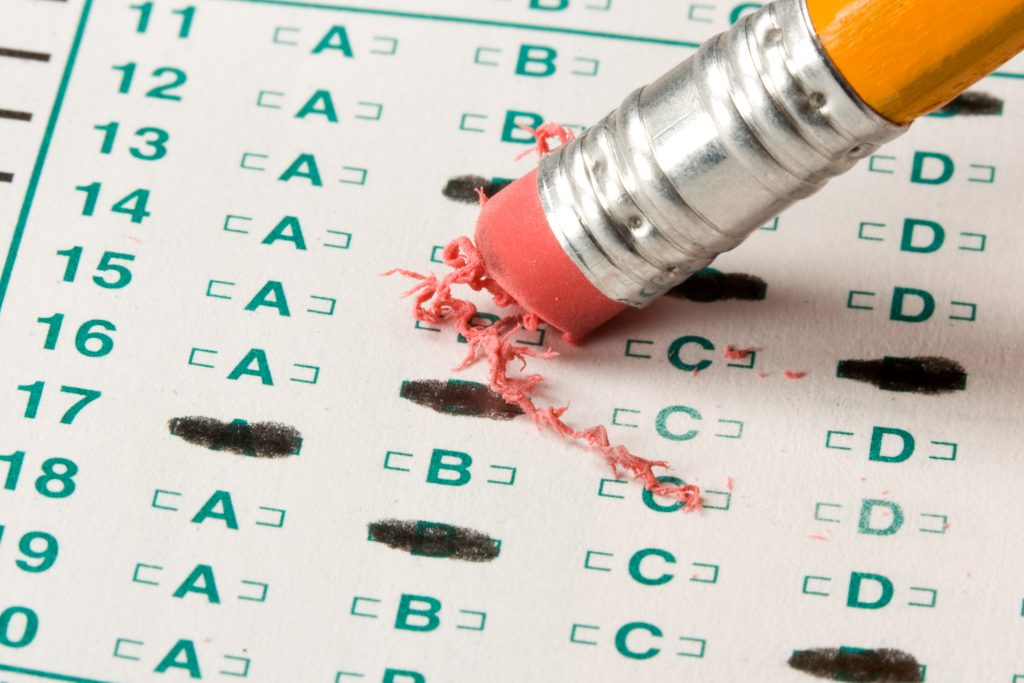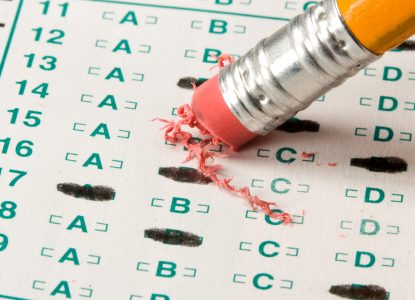By Dr. James Christie, Ambassador-at-Large, Canadian Multifaith Federation
– – –
Where and when I grew up, the rhythm of the school year was defined by four points of severe anxiety. Mid-October; mid-December; mid-March; and mid-June: each arrived with report cards.
These were real cards. 8 ½ x 11 sheets of cardboard were folded in half to form rudimentary booklets. They resembled nothing so much as greeting cards, lacking only in the generic good wishes.
A Map of Performance
The front cover displayed the name and the crest of the issuing school, the student’s name, the teacher’s name, and the grade level.
The left-hand interior page listed the subjects studied, and the grade attained. Grades were numerical, even for Physical Education.
There was some room for teacher comment, often caustic. The right-hand interior page was designated for the teacher’s assessment of the student’s social development. All this was hand written. Cursive was a necessary skill.
The back page provided general information and a signature line for the teacher, the principal, and whichever parent was perceived by the student to be the less volatile in their response to the report on their hapless offspring.
The report was to be returned to the school, complete with parental imprimatur within a week. Forgeries of parents’ signatures were often attempted, rarely successfully.
As a parent myself, having received a variety of reporting formats, I have come to appreciate the earlier, simpler version.

Granted, those antique report cards offered little scope for nuance. But they did enjoy the benefit of simplicity. Then, with a basic grasp of numeracy and literacy, parents could digest the information provided on a relatively level playing field. Higher numerical grades indicated that the student was achieving the objectives set by the Provincial Ministry of Education. Lower numerical grades, not so much. This begs the question of whether the objectives and content of the curriculum were worth pursuing in the first place. That is a question for another day.
As to the teacher’s written comments, they seemed always to read “a greater effort will be required to achieve success…”
Grading a Pandemic-Rocked World
It is time for a pandemic report card on the learnings of the global community since March, 2020. For all peoples and nations, the COVID-19 learning curve has been steep. The curriculum for addressing this planetary reality appears to be revised daily, sometimes hourly. How are we doing?
The scientific disciplines cannot be faulted. Having been almost universally starved for research funding since the less virulent pandemics earlier in this century, science has responded admirably. We accord them top grades in the development of multiple, safe vaccines in minimal time.
In the Applied Sciences, i.e. the manufacturing technologies, the grades are a little lower, but still commendable.
But in the fields broadly characterized as the Humanities, the results are less stellar, ranging from a bare pass to OMG!
Vaccine Distribution: Needs Improvement
Distribution of vaccines has been and remains a shambles. According to rabble.ca, by the end of July just past, 75% of humanity remains completely unvaccinated. Only 2% of all Africans have been inoculated even once.
Our World in Data reports that only 1.1% of the poorest people in the global community have received a single dose.
By the end of July 2021, for example, the statistics reveal the following vaccine data:
- Haiti: 0.1%
- Congo: 0.1%
- Syria: 0.7%
- Yemen: 1.0%
- Nigeria: 1.7%
- Ethiopia: 1.9%
- Iraq: 1.8%
- Afghanistan: 2.1%
The WHO attributes these devastating numbers in part to vaccine hoarding by rich northern nations. But surely that’s not the whole story.
The Complications of Politics and Profit
Despite the science, politics have intruded into the process of vaccine recognition and acceptance. Currently, the US does not recognize Oxford-Astra Zeneca. Italy will not accept Pfizer vaccine produced in India. The Russian Sputnik vaccine is accepted only by Russia and some Latin American countries.
Prominent world leaders have and continue to treat the pandemic and its spikey round virus as a political football.
Big Pharma, having performed brilliantly technologically, is rumoured to be raking in profit margins of up to 80% to the detriment of the poor and the ill.
The human community is clearly amassing failing grades in History, Economics, Language and Communication Skills, and Moral and Social Development.
The comment page of the report card, in red ink (we all know what that means), must continue to read, “the human community does not play well with each other.”
And this is only with respect to COVID-19.
Greater Effort Required
If anything, the assessment of the climate crisis; economic disparity; racism; opioid pandemics; international computer crime; human trafficking; forced migration, and Great Power bullying is even more dismal.
Many readers will recall the hopeful posture adopted by the distinguished author, Arandati Roy, in April, 2020. The pandemic was just taking hold and she urged humanity to view COVID-19 as a Portal. We could go through that portal dragging behind us the detritus of our sorry past. Or, we could go through the portal determined to build a better world.
Clearly, our report card must read that a “much greater effort will be required to achieve success.”
Still, let us not despair. In his epic poem Ulysses, the poet Tennyson wrote in 1833, “It is not too late to seek a better world.”
Not quite yet, at least.
But we cannot afford too many more failing grades.
– – –
Dr. James Christie is the inaugural Ambassador-at-Large for the Canadian Multifaith Federation and part of the G20 Interfaith Forum Board of Directors. For 15 years, Christie served at the University of Winnipeg as Dean of Theology, Dean of the Global College, and Director of the Ridd Institute for Religion and Global Policy.


